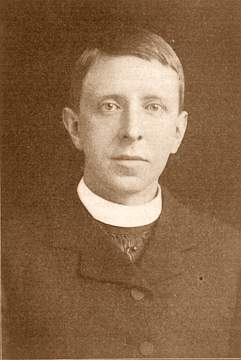 |
| 'The only known photograph of God' Used with Permission of the Merton Legacy Trust and the Thomas Merton Center at Bellarmine University. |
Subject: Thomas Merton - his photograph & humour
Dear Father Donald,
Your seminar on Saturday - I omitted to mention the man behind the lens of so many of his atmospheric photos, and his humour (see attached!)
William.
COMMENT:
St. Bernard, passage below, rings the
pendulum of ‘benevolent / malevolent’. Bernard keeps us often in suspense.
'They
enjoyed the Lord's blessings but were utterly ignorant of the Lord of Hosts
because he ruled all things so silently'.
'...
the one who mightily but invisibly created the world, rules it wisely, and
safeguards it benevolently'.
Tomorrow monks are attending
the Celebration of Thomas Merton and workshop of photographs of Merton – in the
mode....
TWENTY-SEVENTH
WEEK IN ORDINARY TIME
FRIDAY 9th October 2015.
First
Reading 2 Kings 21:1-18.23 - 22:1
Responsory Ps 52:1.2.5-7
Why do you boast of your wickedness, you champion of evil? You love evil more than good, falsehood more than truth. + For this God will destroy you, uproot you from the land of the living.
V. The just shall laugh and say: Here is the man who refused to make God his refuge. + For this God ...
Second Reading
From a sermon by Saint
Bernard
Sermones in Canticle VI,
2-3: PL.183, 803-804.
Human beings experienced constant
benefits but the benefactor was hidden from them. He reached indeed from end
to end mightily, arranging all things pleasantly, but humankind did not
perceive him. They enjoyed the Lord's blessings but were utterly ignorant of
the Lord of Hosts because he ruled all things so silently. They were from him
but not with him; they had life through him but did not live for him; they had
understanding from him but did not know him, for they were estranged,
ungrateful, foolish. In the end they attributed existence, life, and understanding
not to the author of these but to nature or even, much more stupidly, to
fortune; many also conceitedly claimed that much was the result of their own
diligence and abilities. Think of all that seductive spirits arrogated to themselves,
and all that was attributed to sun and moon or earth and water or even things
made by mortal hands! Deference was paid to plants and trees and the tiniest
most contemptible seeds as to divinities.
Thus, alas, did men and women lose their
true glory, exchanging him for the image of a bull that eats grass. But
taking pity on them in their errors, God graciously came from his shaded,
thickly wooded mountain and placed his tent in the sun. To those who knew only
the flesh he offered his flesh that through it they might learn to perceive the
spirit. For while in the flesh he did works through the flesh that were not of
the flesh but of God: commanding nature, conquering fate, showing human wisdom
to be folly, and vanquishing tyrannous demons. He openly showed himself to be
the one through whom these things, whenever they occurred, had all been
prepared at one and the same time. In the flesh and through the flesh he worked
miracles openly and mightily, spoke a saving message, endured undeserved
suffering, and made it clear that he is the one who mightily but invisibly
created the world, rules it wisely, and safeguards it benevolently. Finally,
when he preached the good news to the ungrateful, offered signs to unbelievers,
and prayed for his crucifiers, did he not clearly show himself to be the one who
with his Father daily makes his sun rise upon the good and the wicked and the rain
fall on the just and the unjust? He himself said as much: If I do not
do the works of my Father, do not believe me.
Responsory Ti 3:4; Mt 1:21
When the kindness and generosity of God our Saviour dawned upon the world, it was not because of any good deeds of ours but from compassion that + he saved us through the cleansing water of rebirth and the renewing power of the Holy Spirit which he generously poured out on us through Jesus Christ our Saviour.
V. You shall call him Jesus, for he will save his people from their sins. + He saved us ...










